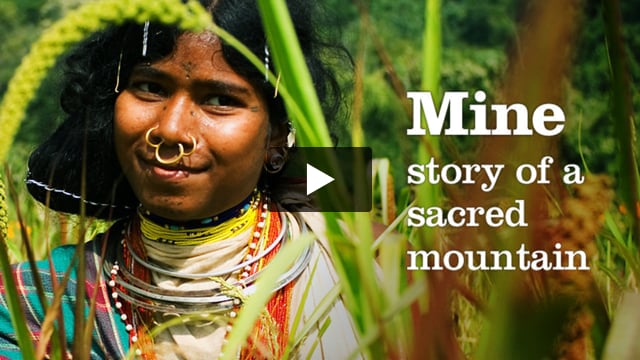New Survival campaign targets British company Vedanta - mine set to destroy remote tribe
April 29, 2008
This page was created in 2008 and may contain language which is now outdated.
Survival International has launched a new campaign targeting British FTSE-100 company Vedanta, whose plans to mine a sacred mountain in India, if approved, will destroy the remote Dongria Kondh tribe. Vedanta is owned by London-based Indian billionaire Anil Agarwal.
Survival is urging shareholders, including major British companies Standard Life, Barclays Bank, Abbey National and HSBC, as well as Middlesbrough and Wolverhampton Councils, to disinvest unless Vedanta abandons its plans.
Vedanta’s subsidiary, Sterlite, is currently awaiting permission from India’s Supreme Court to mine bauxite, the raw material for aluminium, from Niyamgiri mountain in Orissa, eastern India. The Court is expected to announce its decision imminently.
The 8,000 Dongria Kondh, one of India’s most isolated tribes, vehemently oppose the mine, saying it will end their way of life forever. Sterlite plans to construct a huge open cast mine, which will destroy a vast swathe of untouched forest, as well as a large part of the mountain itself. The Dongria Kondh have lived on the slopes of Niyamgiri since time immemorial, and are totally dependent on its forests. They view the mountain as sacred, grow crops on the slopes, and gather wild fruit in the dense forests.
Norway has already excluded Vedanta from its national pension fund investments, ‘due to an unacceptable risk of complicity in present and future severe environmental damage and systematic human rights violations.’
Dongria Kondh woman Dandu Sikaka says, ‘We cannot live without our Niyamgiri. We need the mountain and the mountain needs us.’
Rahul Gandhi, general secretary of India’s ruling Congress Party, has also spoken out against the mine.
Survival’s director Stephen Corry said today, ‘People who care about human rights should boycott British companies which dispossess tribal peoples. That means not buying their shares. The days of companies successfully sheltering behind local legislation and carrying on violating international law are gone. ‘Vedanta’, the reaching for the divine beyond knowledge, is one of Hinduism’s core religious principles – what a paradox that a company using the name might destroy one of India’s most spiritual tribes.’


